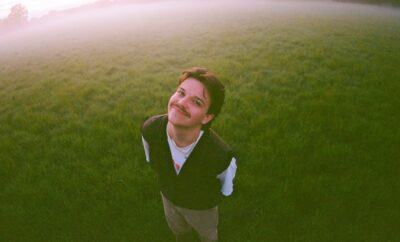 Pat Mazzera
Pat Mazzera
Interviews
Ensemble Mik Nawooj – Death Become Life
By: Jamie Steinberg
Q) How would you describe your sound?
JWK: We sample elements of hip-hop and classical to render new concert music. The underlying idea we use is called Method Sampling, a principle of sampling foreign rationales and by reframing them to come up with a new system. All this jargon aside, we sound as if a classically trained composer tried to write hip-hop bangers using only what he knew and miserably failed but ended up with something new.
Sandman: It’s difficult to describe the sound. I prefer Metamusic as a means of describing our sound. It’s self referential. It is what it is. Enjoy.
Q) Who are some of your musical influences?
JWK: A lot of G funk and classical music. But absolutely not Michael Haydn, the Stephen Baldwin of Haydn brothers.
Sandman: So many. Tupac and Andre 3000 are my favorite MCs. 3xKrazy were major influences in that they were so stylistically different. Quincy Jones and Curtis Mayfield are my favorite composers. JooWan would have to be a musical influence since without his music my writing would not have evolved the way it has.
Q) Talk about the story behind your new song “Who Would Be Born.”
JWK: It’s a quote from Demian (Hesse), “who would be born must destroy a world.” There’s a definite sense of impending doom and a new birth in the world with all the extreme changes occurring. I wanted to capture the subterranean force that is triggering this world-end/new beginning. Also, there’s a slight sense of “no one knows what it means, but it’s provocative,” a la Blades of Glory.
Sandman: My lyrics, however cryptic, are meant to convey the need to abstract from norms, if you intend to come anew. And normal in our society is consumption, indulgence and perhaps not normal at all. “So, what are you famous fo(r)? Get shit faced and wasted slow?”
Q) What do you think it is about the song that fans connect to?
JWK: There’s a programmatic/narrative quality that’s built in the piece. Then, there are the magic syllables at the end. Though, in general, I’m a poor judge of why people like certain tracks and not the other. My taste and opinion don’t usually align with many people.
Sandman: I think people will connect with the dire feeling of the song. I think it parallels what people are feeling now. Further, it is also a call to action. People want something new.
Q) How does the video for the track play into the message behind it?
JWK: This is tricky as the video is more of a live performance film + dance footage featuring Asian Art Museum and various locales in the Bay Area. We shot all five music videos while we were recording the album during the lockdown and our film crew (Matthew Boman and Tosca Rivola) did a fantastic job working with the many restrictions.
Q) What was it about “Beethoven on Struggle” that made it standout to be the first single off your upcoming album?
JWK: Market research and AB testing… [laughs] Well, at the time of the release, there was “Global Ode to Joy,” a celebration of Beethoven’s 250th birthday organized by Carnegie Hall and Google. Plus, there’s a fugato with triple invertible counterpoint in the track. Who doesn’t like invertible counterpoint?
Sandman: It’s universally recognizable, whether you listen to classical music or not.
Q) When it comes to the lyrics/raps, what is your writing process? Do you need music before you can create lyrics?
JWK: I’d refer this question to our illustrious resident MC.
Sandman: I don’t need music to write. When JooWan delivers a theme or concept I tend to write independent lines. When he sends me the music, it’s a shifty (and I mean shifty) midi track. I’ll finish verses to that, but the writing isn’t really complete until I listen to the music live. That made recording the Beethoven, Bach and Mozart interesting being that I hadn’t heard the music until it was time to record. So, some of the lines were written on the fly.
Q) What are some themes you’ll be exploring on your upcoming album Death Become Life?
JWK: I think this quote from Camus sums it up nicely – “In the midst of winter, I found there was, within me, an invincible summer. And that makes me happy. For it says that no matter how hard the world pushes against me, within me, there’s something stronger – something better, pushing right back.”
Sandman: The transmigration of the soul, reincarnation, family, children as a reiteration
Q) What songs off the album hold a special significance to you and why?
JWK: “Everything Ends,” “Hymn” and “Everything Returns to One” were written in 2014 after dealing with my mother’s passing followed by a longtime family friend Louis Clemence, a man who was like a grandfather to me. With that said, the entire album is designed to create a catharsis. There are so many things we can’t control that are overwhelming us right now and I wanted a consolation, a sense of ataraxia (equanimity). This is reflected in all the tracks.
Q) Which of the songs challenged you the most to coordinate with the orchestra?
JWK: Whatever the ones that viola plays any substantial roles other than something hidden or background. Aside from the viola joke, this whole album was challenging due to the limited amount of time/budget. All of them were done either one or two takes the most.
Q) What do you hope listeners take away from your work on Death Become Life?
JWK: That people can relieve their frustration and soothe their spirit as I have done while writing and recording this album. Incidentally, the title “Death Become Life” (not becomes but become) stems from a prayer I wrote – May good conquer evil, light banish darkness, and death become life.
Q) Who would you most like to collaborate with on a song in the future?
JWK: Whoever we have the least amount of potential legal troubles with. As of now those who are in that category have been all deceased and entered the wonderful world of public domain, one of the best domains in Burgundy.
Q) You are a part of social media. Why is that such an important way for you to connect with your fans?
JWK: Because it promotes the diversity of thoughts.
Q) What would you like to say to everyone who is a fan and supporter of you and your work?
JWK: Find strength within yourself. The entire aggregate of good and happy things in the universe resides there. This is why Linji (a Zen master from Tang Dynasty) said, “Meet the Buddha, kill the Buddha. Meet the Patriarch, kill the Patriarch.” All the answers to your questions are inside of you.
All Questions Answered By JooWan Kim and Sandman





You must be logged in to post a comment Login